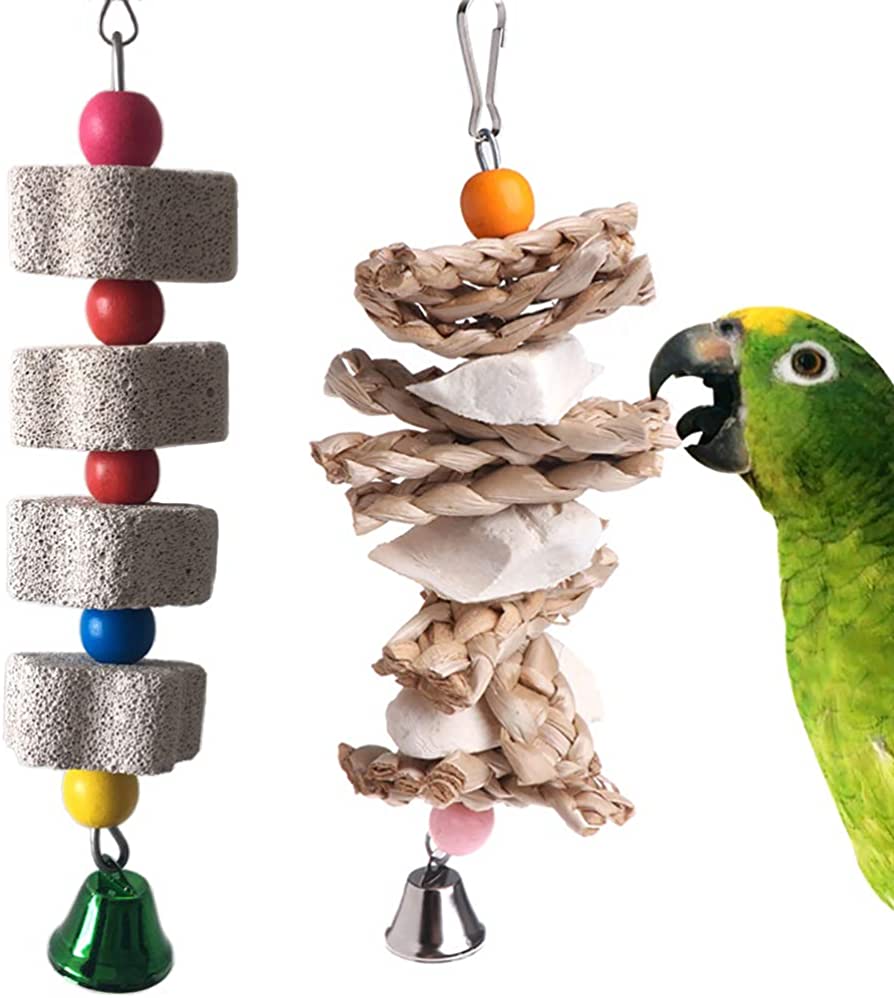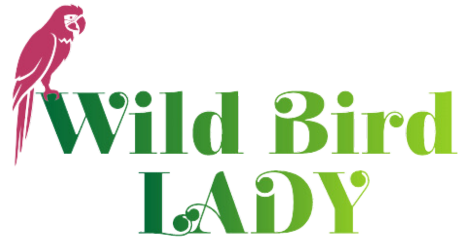Cockatiel beak grinding is a sign of contentment and relaxation in these birds. They do it because it helps them release tension and calm down.
Cockatiels are popular birds for their affectionate and playful nature. These small parrots are also known for their curious behavior, including the habit of grinding their beaks. While many people may think that this is a sign of discomfort or pain, it is actually quite the opposite.
Cockatiels grind their beaks as a way to relax and feel safe. This behavior is similar to how humans might clench their fists or tap their feet when feeling anxious. If you’re a cockatiel owner, understanding this behavior can help you create a healthy and happy environment for your feathered friend. In this article, we’ll discuss what beak grinding means and why cockatiels do it.

Credit: www.birdsauthority.com
The Meaning Behind Cockatiel Beak Grinding
Cockatiels are fascinating birds, and one of the most common behaviors they exhibit is beak grinding. This rhythmic movement of the beak can have several interpretations, and it’s essential to understand what your cockatiel is trying to convey through this behavior.
Physical And Behavioral Explanation
Beak grinding is a natural behavior that serves several physical purposes. While it might occur at any time of the day, you’re most likely to notice it during the evening when your cockatiel prepares to rest. It’s an activity that helps them keep their beak healthy and groomed, and it’s comparable to humans filing their nails.
Additionally, beak grinding signals that your bird is content. It’s a way for them to relax and feel comfortable in their surroundings. If your cockatiel is repeatedly grinding its beak, it indicates they’re in a relaxed mood and comfortable with their environment.
Correlation Between Cockatiel Beak Grinding And Emotions
Beak grinding can also indicate several emotional phases for your bird. If you observe your bird doing this behavior when relaxed, it’s likely because they feel comfortable and happy. But, if they repeat the activity during the day or at times other than rest time, it’s possible your bird is dealing with anxiety or stress.
Similarly, if your bird doesn’t stop grinding its beak, it suggests they might be experiencing discomfort or pain. Observe other behaviors and changes in appetite, bowel movements, and communication to know if there are other indications of distress.
Cockatiel beak grinding is a natural part of their routine, and it’s essential to understand its implications. It can signify your bird’s emotions, so being attentive to beak grinding can be beneficial for both you and your cockatiel.
When it comes to cockatiel behavior, understanding their body language is critical. By knowing what beak grinding can signify, you’ll be better equipped to understand your bird’s emotional state and ensure they’re always comfortable.
Moreover, observing changes in behavior can signal health concerns. Keep a close eye on their demeanor, and if you notice any negative behavior changes, contact your veterinarian.
Beak grinding is only one behavior aspect of cockatiels. In addition to this, there are many other gestures that cockatiels display to express their moods, feelings, and overall health. Pay attention to these cues; they provide a unique gateway to better communication with your bird.
Understanding cockatiel beak grinding may help you understand why your cockatiel exhibits this behavior and be more attuned to their emotional needs. By observing your bird’s behavior, you can establish a more extraordinary bond with your cockatiels and ensure they’re at their happiest and healthiest.
Environmental Factors Affecting Cockatiel Beak Grinding
Cockatiels are social creatures that need essential environmental factors to remain healthy and happy. Environmental factors affecting the beak grinding behavior of cockatiels include living conditions, diet and hydration, and routine and schedule.
Living Conditions Of Cockatiels
The living conditions of a cockatiel are crucial to their overall wellbeing and beak grinding behavior.
- Cage size: Cockatiels need a cage that’s two or three times their wingspan. If their house is too small, it can lead to stress, making beak grinding difficult.
- Location: Cockatiels are vulnerable creatures that need a quiet and safe spot to call home. Locate your cockatiel’s cage in a place where they can feel safe from busy life activities.
- Environment: Cockatiels don’t like extreme temperatures or drafts. Ensure their living conditions are conducive to a safe and comfortable environment.
Diet And Hydration
A balanced diet is the key to keeping cockatiels happy and healthy.
- Variety: Cockatiels need a varied diet, including fresh vegetables, fruits, and proteins. Monotonous diets can lead to health issues and reduce beak grinding tendencies.
- Timing: Cockatiels need to eat twice a day, in the morning and evening, to remain healthy.
- Hydration: Cockatiels love to bathe and drink water, ensuring they have adequate hygiene to stay hydrated.
Routine And Schedule
Beak grinding is behavior linked to positive emotions, and routine and schedules can impact these emotions.
- Playtime: Cockatiels need playtime to maintain their mental and physical health. Playtime will improve their overall quality of life by keeping their beak grinding tendency active and healthy.
- Sleep: Cockatiels sleep for about twelve hours in the night-time. Ensure they get enough rest and a good amount of sleep to maintain beak-grinding behavior and good overall health.
- Human interaction: Cockatiels need interaction with humans to maintain social bonds that can affect their beak grinding tendency. Interact with your bird daily to maintain excellent social bonding relationships.
Understanding the environmental factors that impact cockatiels’ beak grinding behavior is crucial to maintaining a healthy and happy bird. By observing the living conditions, diet and hydration, routine and schedule of your bird, you can ensure they are happy, healthy, and milling their beaks regularly.
Health Issues And Cockatiel Beak Grinding
Understanding cockatiel beak grinding: what it means and why they do it
Cockatiels make great pets because they are playful, beautiful, and have a personality that captures the heart of their owners. If you are a pet parent to a cockatiel, you might have observed your bird grind its beak from time to time.
Beak grinding is a common behavior that cockatiels exhibit, and it serves different purposes. In this post, we will focus specifically on the health issues and reasons why your cockatiel might be grinding its beak.
Possibilities Of Disease And Infection
Beak grinding can indicate the presence of health issues in your cockatiel.
- Respiratory problems: If your cockatiel is suffering from a respiratory infection or pneumonia, it might grind its beak to help clear its airways. Wheezing, labored breathing, and tail bobbing might also be present in such cases.
- Beak problems: Cockatiels use their beaks for a range of activities such as climbing, gripping, and feeding. Therefore, any issues with the beak can cause discomfort and lead to beak grinding. Common beak issues include overgrowth, misalignment, and damage due to injury or malnutrition.
- Painful conditions: Cockatiels can suffer from painful conditions or injuries that cause beak grinding. Arthritis, fractures, wounds, and tumors, for example, can cause your bird discomfort.
Factors That Can Cause Pain Or Discomfort
Apart from health issues, discomfort or pain can cause cockatiels to grind their beaks.
- Stress: Cockatiels are sensitive birds and can get stressed out due to several reasons like noise, changes in their environment, and health problems. Stress can cause beak grinding, along with other symptoms such as feather plucking and aggression.
- Sleep: Cockatiels sleep with their heads tucked in their feathers, and during the night, they might grind their beaks while sleeping. Beak grinding during sleep is normal behavior and doesn’t indicate any health issues.
- Comfort: Beak grinding can indicate that your cockatiel is comfortable and relaxed in that moment. Cockatiels express their contentment and pleasure through different behaviors, including soft singing and fluffing their feathers, in addition to beak grinding.
Beak grinding is a common behavior in cockatiels, and it can indicate different things based on the context. As a pet parent, if you observe continuous beak grinding or any other unusual behavior in your cockatiel, you should consult with an avian veterinarian to rule out any health concerns.
With proper care and attention, you can ensure that your pet cockatiel lives a happy, healthy life.
Understanding Cockatiel Beak Grinding For Better Care
Cockatiels are notorious for grinding their beaks, and they often do it as a sign of being happy and content. However, there is much more to this behavior that pet owners should be aware of. We’ll explore what cockatiel beak grinding means, why they do it, and how to interpret unusual grinding behaviors.
Indicators Of Happy And Healthy Cockatiels
Cockatiel beak grinding can indicate a variety of things, but in most cases, it means they’re feeling happy and relaxed.
- Beak grinding: As mentioned earlier, beak grinding is a natural and healthy behavior that indicates relaxation and contentment.
- Singing, chirping, and talking: Cockatiels are vocal birds, and they love to communicate. If your pet is singing, chirping or talking, it means they’re happy and content.
- Active and playful: Healthy cockatiels are active, playful, and curious. They love to explore and interact with their environment.
- Healthy appearance: A healthy cockatiel has bright and clear eyes, clean feathers, and a healthy appetite.
How To Address Unusual Beak Grinding Behaviors
While beak grinding is perfectly normal for most cockatiels, some unusual grinding behaviors should be addressed immediately.
- Grinding with force: If your cockatiel is grinding their beak forcefully, it could indicate an underlying health issue that needs to be addressed.
- Grinding while fluffing: If your pet is grinding their beak while fluffing their feathers, it could indicate that they’re feeling sick or uncomfortable.
- Grinding with beak open: If your cockatiel is grinding their beak with an open beak, it could indicate that they’re feeling stressed or anxious.
If you notice any of these behaviors, it’s important to seek veterinary care immediately.
Factors To Improve Cockatiel’S Life Quality
To ensure that your pet cockatiel is healthy, happy, and content, here are a few things to keep in mind:
- A balanced diet: A balanced and nutritious diet is essential for your bird’s health. Offer them a variety of fresh fruits, vegetables, and birdseed to keep them healthy and happy.
- Clean environment: A clean and hygienic environment is essential to your bird’s well-being. The cage should be cleaned regularly, and the water should be changed daily.
- Social interaction: Cockatiels are social birds and love to interact with their owners. Spend time playing, talking and grooming your pet to keep them happy and content.
- Toys and accessories: Cockatiels love toys and accessories, like swings, ladders, and mirrors, which help keep them entertained and mentally stimulated.
By keeping these points in mind, you can ensure that your pet cockatiel is healthy, happy, and content. Remember that taking proper care of your pet bird requires patience, attention, and dedication.
Frequently Asked Questions On Understanding Cockatiel Beak Grinding: What It Means And Why They Do It
Why Do Cockatiels Grind Their Beak?
Cockatiels grind their beaks as a sign of contentment, relaxation, and well-being. They do it when they feel safe, comfortable, and stress-free. It also helps to keep their beak trimmed and prevent overgrowth.
Is Beak Grinding A Sign Of Sickness?
No, beak grinding is not a sign of sickness in cockatiels. It’s a natural and healthy behavior that indicates a bird’s comfort and security. However, if you notice excessive beak grinding combined with other symptoms, it may be a sign of illness.
Can Beak Grinding Damage A Cockatiel’S Beak?
No, beak grinding cannot damage a cockatiel’s beak. In fact, it’s beneficial as it helps to keep the beak in good condition by preventing overgrowth and keeping it trimmed. However, if your cockatiel grinds its beak excessively, it may cause wear and tear on the beak.
When Do Cockatiels Usually Grind Their Beak?
Cockatiels usually grind their beaks when they feel safe and comfortable. They do it during their resting periods, such as at night or during naps, or when they are perched and relaxed. Cockatiels may also grind their beaks when they are being petted or stroked.
Can Beak Grinding Indicate A Cockatiel’S Mood?
Yes, beak grinding can indicate a cockatiel’s mood. When a cockatiel is content and relaxed, it may grind its beak. However, if a cockatiel is stressed or afraid, it may stop grinding its beak altogether. Understanding your bird’s body language can help you interpret its mood and behavior.
What Can I Do To Make My Cockatiel Comfortable?
There are several things you can do to make your cockatiel comfortable, such as providing a comfortable and spacious cage, giving it plenty of social interaction and mental stimulation, providing fresh food and water daily, and creating a peaceful and safe environment.
Regular visits to the vet can ensure that your cockatiel’s health is in good condition.
Conclusion
To sum it up, cockatiel beak grinding is a common behavior that pet owners should not worry about. It shows that these birds are content and relaxed in their environment. However, if grinding is accompanied by other abnormal behaviors, it might be an indication that the cockatiel is unwell and needs immediate attention.
As responsible pet owners, we must pay close attention to our cockatiel’s behavior to ensure their health and happiness. Providing them with a comfortable and stimulating environment can help reduce the stress and prevent unwanted behaviors. Remember that cockatiels are social creatures and require a lot of socialization and interaction.
Finally, if you are unsure or concerned about your bird’s health condition, it is always best to reach out to a qualified avian veterinarian for advice. By taking care of our feathered friends, we guarantee happier and healthier lives for them.
Latest Posts
The Ultimate List: Top 8 Best Birdwatching Podcasts for Avid Birders
Looking for the top birdwatching podcasts? Here are the eight best options to tune into today! Birdwatching can be a thrilling, immersive experience that brings...
Stop Squirrels in Their Tracks: 10 Effective Ways to Safeguard Your Bird Feeder Pole
To prevent squirrels from climbing your bird feeder pole, use squirrel baffles and slippery poles. Here are ten effective ways to keep squirrels from stealing bird food and damaging bird feeders. ...


